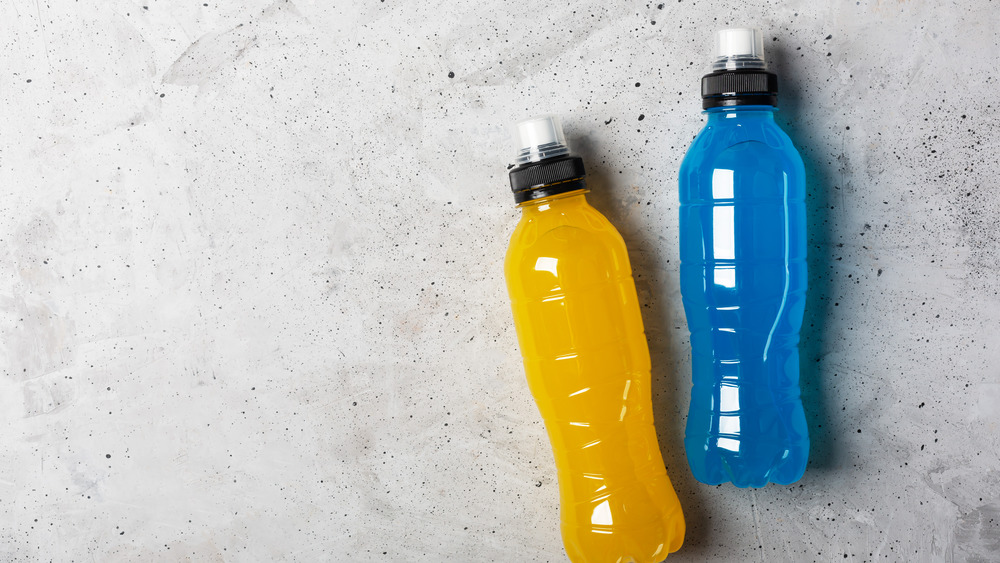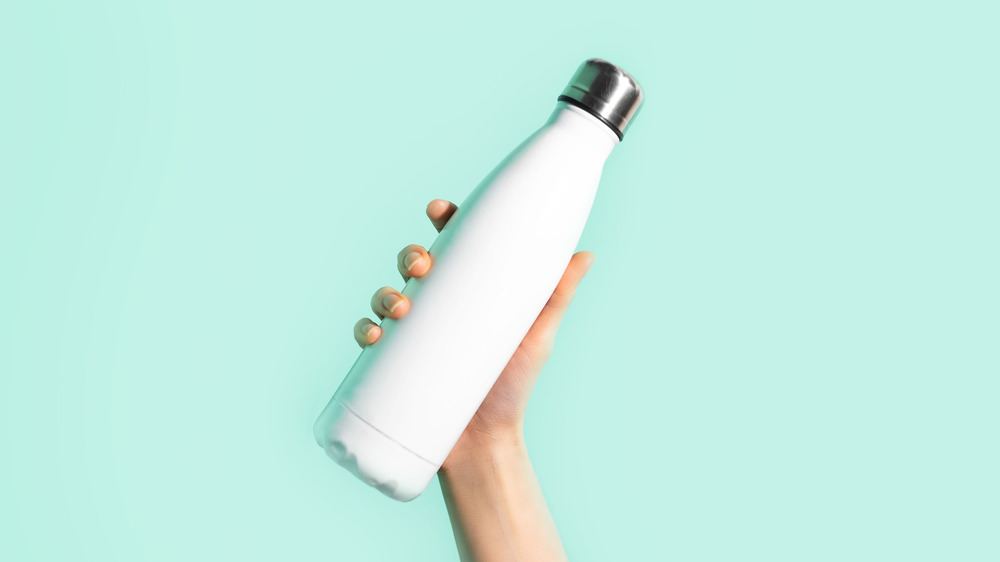Why These Sports Drink Ingredients Are So Concerning
Whether Gatorade is your go-to, or Bodyarmor or some other brand hits the spot, after a hard workout, a sports drink can feel like a breath of fresh air. But as you rush to replace those lost electrolytes, you may have overlooked the fact that some options in the market aren't great for you even if they're marketed as healthy choices. Sometimes, you don't even need a sports drink, as it turns out. But what makes a sports drink good or bad? We decided to consult an expert.
According to Elizabeth Klingbeil, PhD RDN, an Assistant professor of Nutrition at Johnson and Wales University in Rhode Island, it's very important to study the nutritional details of a product before purchasing it. "You always want the first ingredient in your sports drink to be water if it's going help with hydration," she told Mashed in an interview. "You should be wary of any ingredient that provides more than 100 percent of your daily needed value." According to Klingbeil, an excess amount of these ingredients can lead to health risks. Wait, there's more to this. Read on for all the details.
Think twice about some of the ingredients
As per Klingbeil, caffeine is one of the major ingredients to watch out for in sports drinks. "Individuals looking for sports drinks to increase their performance or recovery should be aware of any caffeine found in sports drinks. If the drink has caffeine in it, they are consuming a diuretic, which leads to an increased risk of dehydration and decreased athletic performance," she pointed out. Other things to note? There can be too much of a good thing. She advises everyone to stay away from an excess of vitamins and minerals in sports drinks, noting that consistently consuming over 100 percent of your recommended daily value "can lead to toxicity of those nutrients." Instead, she says, focus on the basic and most important ingredients such as water, carbohydrates, potassium, and sodium.
The thing to remember is that athletes need to be adequately rehydrated to maintain their athletic performance. Also, sports drinks may only need to come into the picture if you're endurance training and can be avoided if your workouts last less than an hour. "Most exercise less than 60 minutes in length does not require you to drink a sports drink in order to recover. Rather, you should simply be drinking plenty of water," Klingbeil advised.

